Guiliano Global Fellows: Broadening Perspectives
For the past 10 years, the Edward Guiliano Global Fellowship Program has awarded more than 180 New York Tech students the chance to participate in experiential-based learning opportunities around the globe that unite academics and culture. Between December 2023 and May 2024, the most recent cohort embarked on journeys to complete their research projects.
These enriching, transformational experiences, which provide students between $750 to $5,000 to travel and perform their studies, must take place at least 200 miles from the student’s home or their New York Tech campus. This semester’s group of six students who traveled for the fellowship went far and wide—some stayed in the United States, while others went as far as India.
Two students, Margaret Licata and Ashley McCray, have yet to depart for their travels, but New York Tech News caught up with a few who have returned to learn about their unique experiences.
Barrier Analysis
With a $1,475 fellowship award supporting her, osteopathic medicine, D.O./public health, M.P.H. student Nawal Wasif traveled to Massachusetts’ Haverhill and Boston, as well as Portland, Maine, where she carried out her project, “A Comprehensive Analysis of Barriers for Urogynecologic Care in Muslim Women.” For her study, the College of Osteopathic Medicine (NYITCOM) student visited three mosques in various settings—rural, inner city, and suburban—to understand the sociocultural barriers that Muslim women face when seeking urogynecologic care.
As a Muslim woman and an advocate for underserved communities, Wasif understands firsthand how challenging it can be to find proper healthcare—especially when exposed to ideologies stating that urogynecologic care has shameful connotations. After synthesizing her findings, she hopes to share her research with healthcare teams to encourage provision of support, cultural sensitivity, and open dialogue for this population of patients. Aspiring to have a career focused on preventive care and women’s health, Wasif says her research and immersion in the communities she visited have played a large role in her personal and professional development.
“Culture can be so impactful on healthcare, especially on sensitive matters like the genital organs,” Wasif says. “I hope that my project acts as a driving force for further studies exploring underlying causes of cultural phenomenon impacting healthcare-seeking behavior in Muslim females, along with the development of culturally sensitive interventions.”

Sludge and Sustainability
As he works toward his M.B.A., School of Management student Revanth Dilli traveled to his home state of Telangana, India, for his fellowship project, “Fecal Sludge Treatment and Sustainability in India.” From December 28, 2023, through January 28, 2024, Dilli visited the city of Warangal, home to the Warangal Faecal Sludge Treatment Plant (FSTP)—the first of its kind in the country and a recognized pioneer in sustainable sanitation solutions. With $4,885 awarded to support his research trip, Dilli paired the fellowship program’s emphasis on global impact with his passion for making meaningful community contributions.
At the FSTP, Dilli sought to develop sustainable financial plans so the plant may have long-term viability. Through on-site visits; cost, revenue, and resource utilization analysis; and meetings with economists, financial advisors, and FSTP operators, he was able to identify areas for improvement and cost-effectiveness. Dilli also synthesized his findings from financial reports, user fees, and operational data to develop a comprehensive roadmap for the plant’s financial future, prioritizing sustainability, affordability, and community engagement.
“Sanitation is a fundamental human right, and in India, millions lack access to adequate sanitation facilities,” Dilli explains. “My research allowed me to contribute to a solution that directly impacts people’s lives and safeguards their well-being. Being part of a project that promotes both environmental sustainability and improved health outcomes was incredibly meaningful to me.”
Conference in Canada
NYITCOM student Daniel Chan is studying evolutionary biomechanics as he pursues his D.O. With physical therapy student Erica Vazquez and Associate Professor of Anatomy Nathan Thompson, Ph.D., Chan is specifically looking at how humans evolved to walk bipedally (on two legs) with the trunk and pelvis rotating in opposite directions. Through motion capture and placing a brace on subjects to encourage the trunk and pelvis to rotate in the same direction while moving (as seen in chimpanzees), the trio sought to deepen their understanding of human evolution and gain insights into how humans’ unique movement patterns developed over time.
With his fellowship award of $1,096, Chan spent March 22 through 25 in Toronto, where he presented his research, “Does Angular Momentum Conservation Explain Small Pelvic Rotations in Human Bipedalism,” at the Anatomy Connected 2024 conference. The four-day American Association for Anatomy event provided him the unique opportunity to experience his first professional conference and a space to learn more about the anatomy field and upcoming innovations in anatomy education.
“I was pleasantly surprised by how many people approached me who haven’t seen this kind of research before,” Chan recalls. “It felt really good to help bridge the gap between the different disciplines and to teach someone something new. My fellowship experience has been a big professional step in both my roles as a scientist and a student.”

Future Projects
McCray and Licata will complete their fellowship projects in May. McCray will visit Rome and Rio de Janeiro for her research, “Road to Medicine: A Global Journey.” Licata, who is studying “Accessible Horizons: Designing for Empathy and Inclusion,” will travel to Copenhagen, Denmark. Chaya Konig, an occupational therapy student, traveled to Ohio in April for her project, “My Music: Creating Independent Play Opportunities for Children with Motor Impairments.”
Students are selected for the Edward Guiliano Global Fellowship Program based on their applications, including the following metrics: the project’s purpose, goals, and methods; creativity; transformative potential; intended effect; and budget proposal.
The next cohort of selected students will complete their travel and projects during summer and fall 2024.
More Features
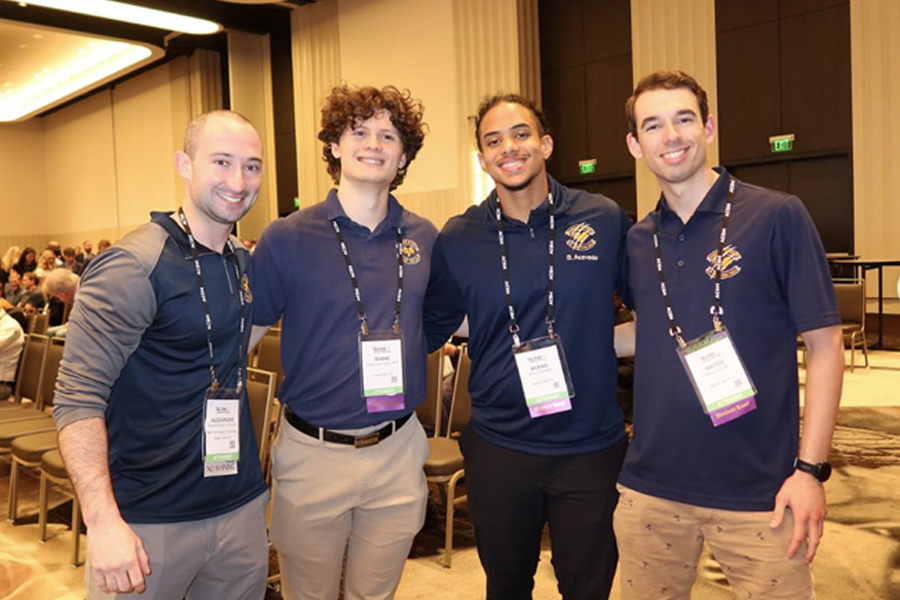
Dedicated to the Pursuit of Knowledge
Students and alumni from the College of Arts and Sciences, School of Health Professions, and College of Osteopathic Medicine shared research findings at impressive industry conferences.
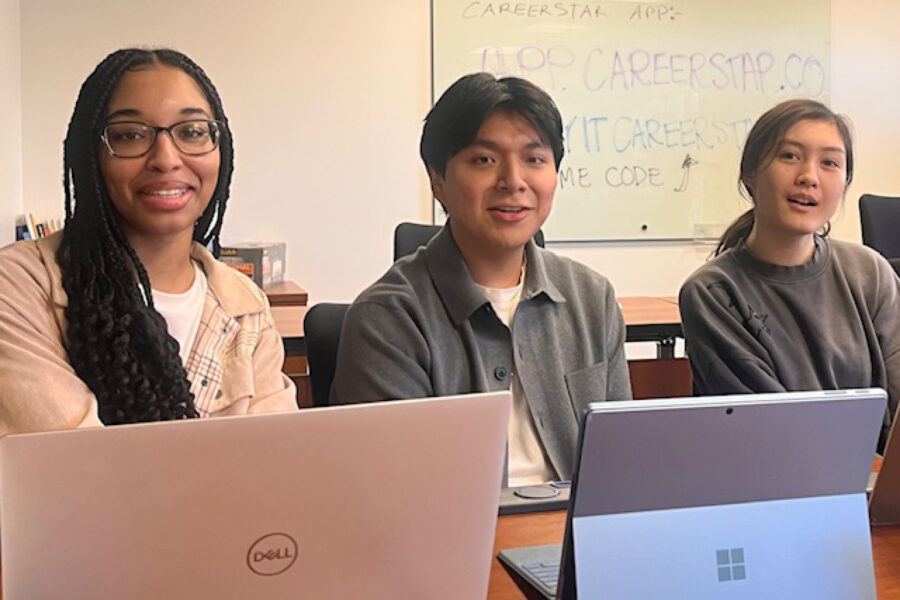
Students Propose Solutions to Commuting Challenges
On the heels of last fall’s efforts to solve commuting challenges, students in spring’s Data 101 course are turning ideas into action.
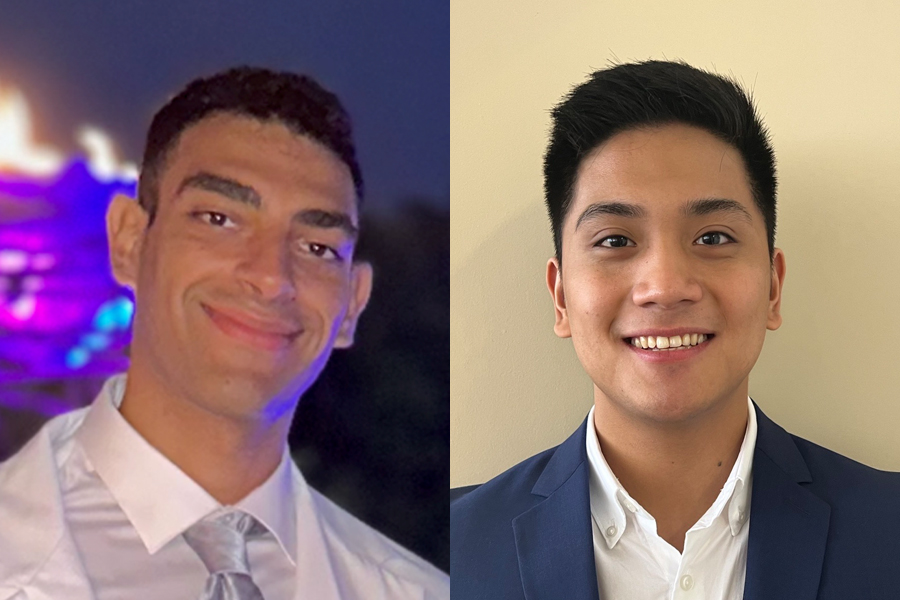
Using AI to Detect ECG Abnormalities
Student-led research uses artificial intelligence (AI) models to interpret abnormalities in electrocardiogram (ECG) test results.
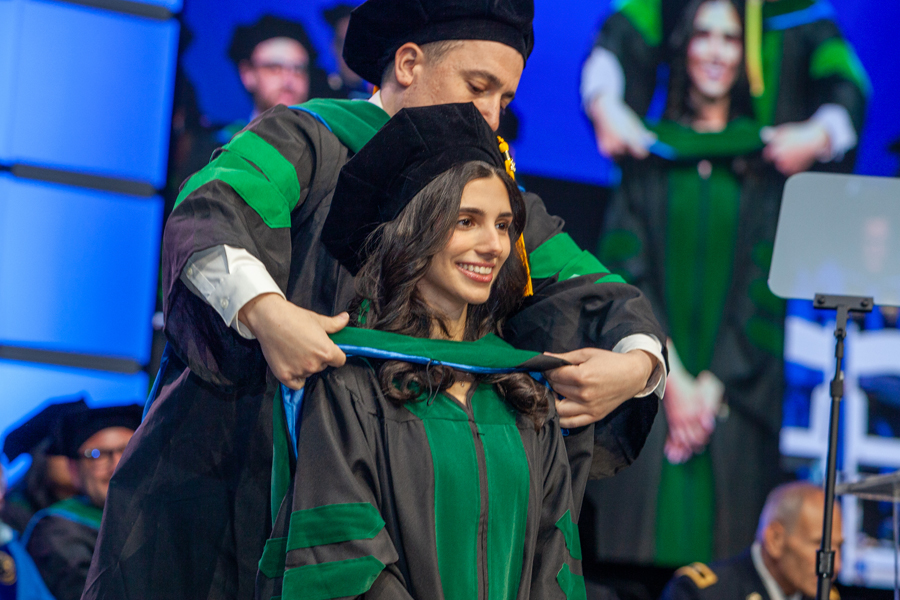
Hooding NYITCOM’s Class of 2025
At ceremonies in Old Westbury, N.Y., and Jonesboro, Ark., the College of Osteopathic Medicine (NYITCOM) ushered in more than 400 new physicians.
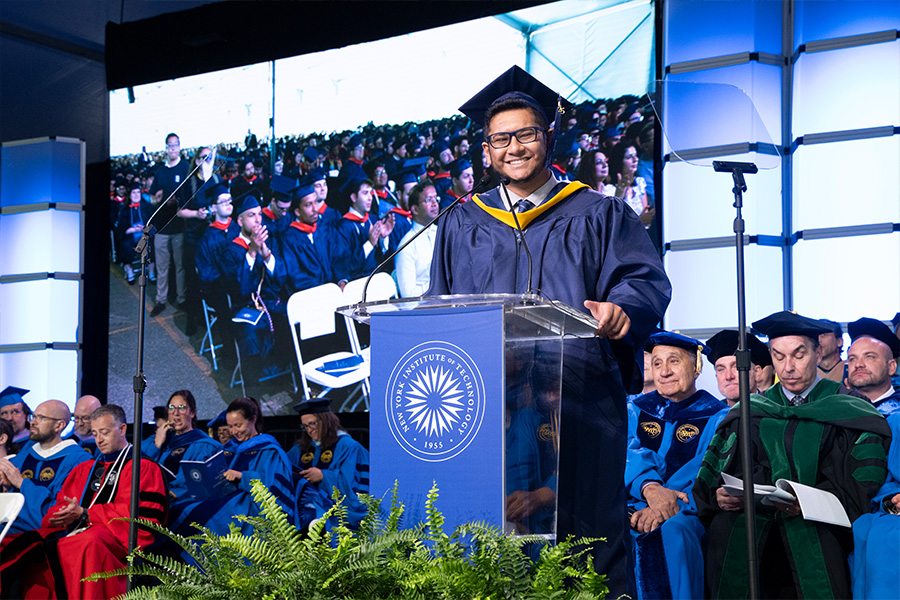
Cheers to the Class of 2025!
On May 18, graduates, family members, and friends joined faculty, staff, and administration at New York Institute of Technology’s Long Island campus to celebrate its 64th annual commencement.
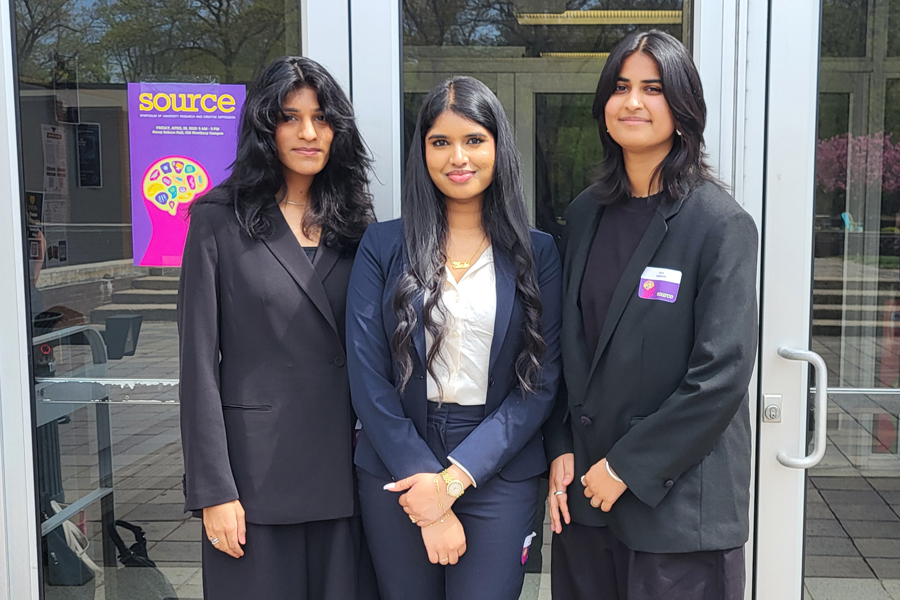
A SOURCE for Student Research
Hundreds of students gathered to present their academic research at New York Tech’s 22nd Annual Symposium of University Research and Creative Expression (SOURCE).